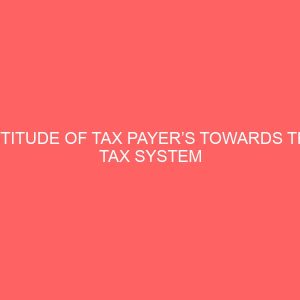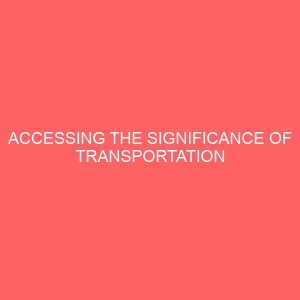Description
ABSTRACT
This project was written in compliance with the instruction given by the Federal Polytechnic Ede this project would be of immense value to those willing to know more about religion, tourism, and the Hospitality industry. Also, the impacts which religion has on the society and tourism, the significance of religion tourism, and some religion festivals were discussed based on its relationship with the hospitality industry.
TABLE OF CONTENTS
Title page…….. i
1.2 Background of the Study. 3
1.4 Significance of the Study. 4
1.6 Limitation or Scope of the Study. 5
2.3 Brief History of Religion.. 12
2.4.3 Traditional Religion.. 17
2.5 The Relationship between Religion and Tourism.. 18
2.6 Concept of Hospitality Industry. 22
2.7 Brief History of Hospitality Industry. 23
2.8 Classification of Hospitality Industry. 25
2.9 The Importance of Tourism and Hospitality Industry in Nigeria. 27
2.9.1 Impact of Religion on Tourism and Hospitality Industry. 28
3.2 Method of Data Collection.. 32
4.0 Presentation, Analysis and Interpretation of Data. 34
4.1 Analysis and Interpretation of Respondent according to Personal Data 34








Reviews
There are no reviews yet.